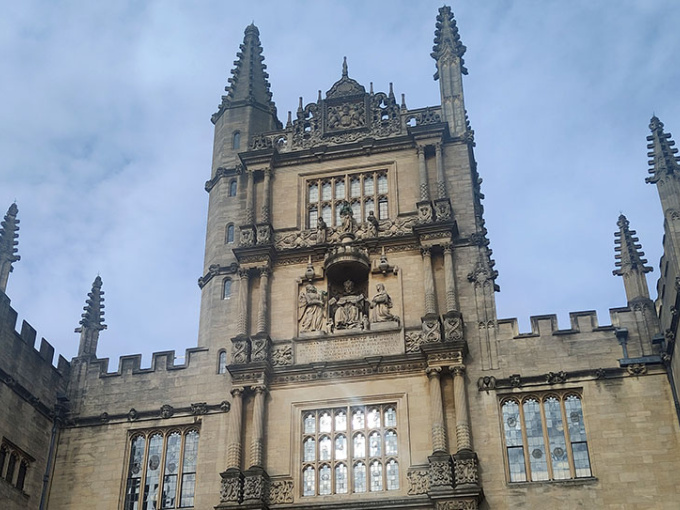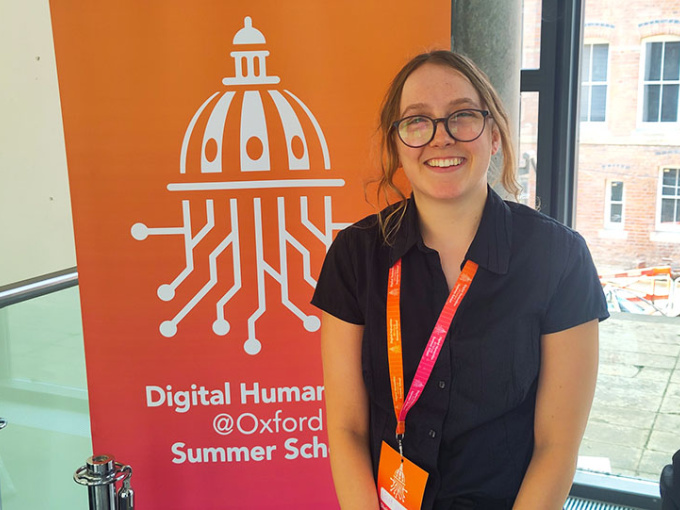
Each summer Oxford University opens its doors to a range of summer schools and courses. As the PhD researcher on 'PATHOS: Inscriptions of Global Conflict in Irish Artistic Practice, 1922-present', I recently attended the Digital Humanities Summer School 2025, joined by a wide range of researchers working within the humanities.
The experience, kindly funded by Research Ireland as part of my doctoral training at Mary Immaculate College, was a week-long workshop of interactive lectures and opportunities to network. The digital skills gained during the course will be invaluable to my PhD research, enabling me to utilise and lasting digital methodologies to examine Irish literary periodicals in recent years.
Held at St Anne’s College in Oxford, the lectures were accompanied by the beautiful scenery and nature present at the college. This year, the summer school encompassed four different strands: Humanities Data, An Introduction to TEI, From Text to Tech, and Applied Data Analysis. As part of the Humanities Data strand, I got the opportunity to explore the various principles, techniques and practices typical of digital humanities. This varied course load allowed for a number of experts from various institutions to lend their expertise and provide insights into DH techniques and software. Of particular use to my research going forward was the interactive session on OpenRefine, presented by Edith Halvarsson. This tool allows for the handling and sorting of large datasets and will be particularly significant in my project during my residency with the Irish literary magazine The Stinging Fly in Autumn/Winter 2025. OpenRefine will assist in the handling of their recent submissions data in relation to my research questions in a more streamlined way.
 Leah Smith, PhD Researcher on 'PATHOS: Pathologies of Violence in Global Conflict'.
Leah Smith, PhD Researcher on 'PATHOS: Pathologies of Violence in Global Conflict'.
These lectures and the information and skills learned during the course of the week are significant, but the true highlight comes from the wealth of knowledge possessed by everyone in attendance, whether they presented at or participated in the course. The interdisciplinarity implicit in the summer school allowed for cross-departmental interaction and collaboration, leading to the sharing of different digital humanities techniques one might not have come into contact with within one’s own discipline. Not only were peoples’ research backgrounds colourfully varied, but the breadth of origins allowed for cultural exchange and discussion around different methods of educating and researching and the ways they might differ between countries and institutions. By featuring people from different stages of research: from Masters to PhD, to those already established in their field, the course showcases the extent and variety of paths available to researchers both in and outside academia.
I learned a great deal from the Oxford Digital Humanities Summer School, not least that the world, both digital and otherwise, moves at such a rapid pace, that to pause your learning and the expansion of knowledge for even a moment can mean being left behind. I’m looking forward to putting the skills learned during my week at Oxford to use, both within my research and the larger PATHOS project. Many thanks must be given to both Research Ireland and MIC for providing me with this wonderful opportunity and supporting my continued postgraduate development.
For more about the PATHOS Project, click here.
- Principal Investigator: Dr Ailbhe McDaid
- Postdoctoral Fellow: Dr Julie Morrissy
- PhD Researcher: Leah Smith



